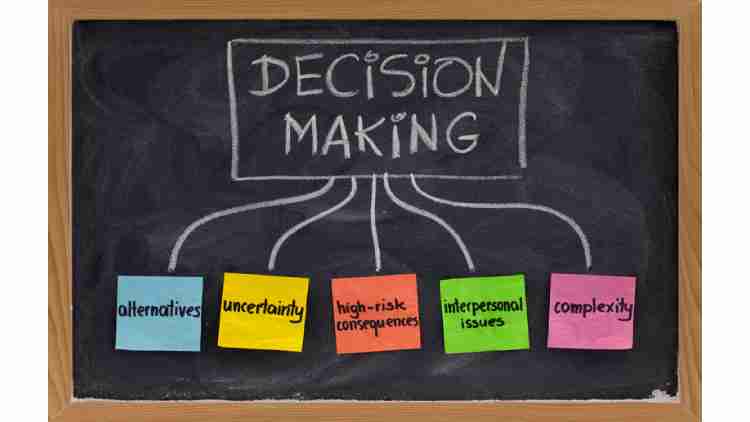Making decisions is a necessary part of life. However, it can sometimes be overwhelming or even paralyzing when the decision is big.
Some people think too much about their options, which can make it harder to come to a conclusion. They can also be biased by wishful thinking or jumping to conclusions too quickly.
1. Analyze the Importance
Many decisions seem trivial when they’re happening in the moment, but they can have long-term consequences. It’s important to make sure you’re taking everything into account before deciding, and you can do so by developing a framework for the decision making process.
Start by framing the situation and identifying your priorities. This will help you prioritize the information you need and avoid getting overwhelmed by too much data.
Once you have the relevant information, try using a decision matrix or pros and cons list to weigh each option. This will ensure that all the benefits and disadvantages are considered. It also allows you to compare alternatives and find the best solution.
2. Don’t Panic
Making decisions under pressure is one of the easiest ways to get them wrong. Try to avoid panicking and rushing into your decision, and take the time to think about the pros and cons of each option.
Also, try not to catastrophise – this unhelpful thinking style that is associated with anxiety can make you imagine the worst outcomes of your decision. It’s better to accept that no matter what choice you make, it is not guaranteed to be the perfect option.
Another way to avoid panic when making big decisions is to pretend you are advising a friend. This will help you to remove your emotions from the situation and be more objective.
3. Take Your Time
Every decision requires some thinking as you weigh pros, cons, consequences and all of the options. However, overthinking can keep you from making a decision and can cause stress that makes your final choice less desirable.
Creating a framework for making decisions can help you avoid overthinking and make good choices quickly. This could include things like setting a time limit for how long you’ll spend on information gathering or taking a break to clear your mind.
It’s also important to remember that sometimes, a good enough decision is better than waiting for the perfect one. Delaying a decision can often result in more costs and problems.
4. Don’t Repeat Your Mistakes

Having a good decision-making process is vital for living your best life. Whether you are making decisions about what to wear to work or where to spend your vacation, having the right approach can make all the difference.
It is important to understand why you may have made a mistake so you can avoid repeating it in the future. This will help you to build confidence in your abilities.
One of the best ways to do this is to pretend you are advising a friend. This removes you from a situation enough to allow you to be objective and consider all your options.
5. Make Decisions in a Fun Way
When a decision feels difficult, it can help to think about it in a fun way. This can be as simple as identifying what’s holding you back, using heuristics to make fast decisions, and considering the cost of delaying your choice.
Another fun way to make decisions is by creating a framework for your choices. This could include a checklist of things to consider, setting a timer, or even reflecting on how you would advise a friend in a similar situation.
The best way to develop a smart, rational decision-making process is to practice it. By implementing some of these tips and tricks, you can improve your ability to make great decisions on the fly.
6. Make Group Decisions
While decision making is often personal, it’s important to get others involved when necessary. Group decisions can be more effective, especially on complex issues that require a wider range of expertise.
Groups can also make better decisions when they have clear goals and a specific decision-making process. This includes using a facilitator who is neutral and can help keep discussion focused.
Summary:
Another important consideration is the category of the decision. It is important to avoid polarized decisions, which are difficult or impossible to reverse. Basic brainstorming is a great way to get ideas flowing and avoid this problem. Also, encourage members to critique one another anonymously during deliberations.
